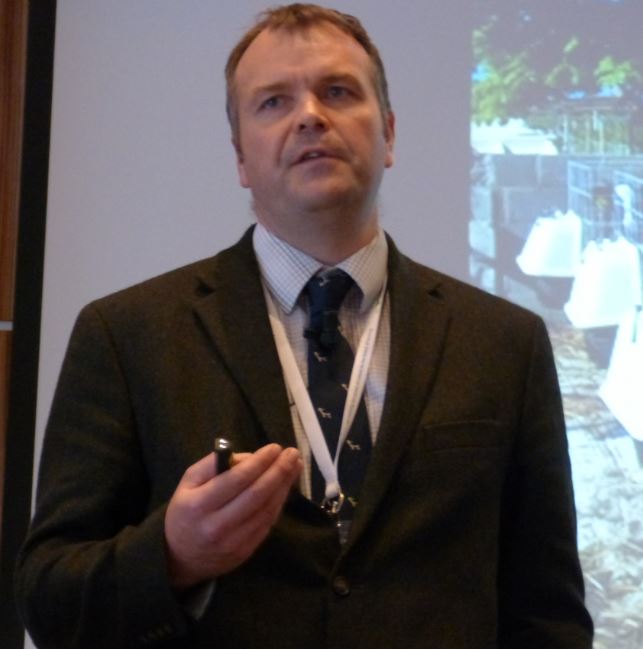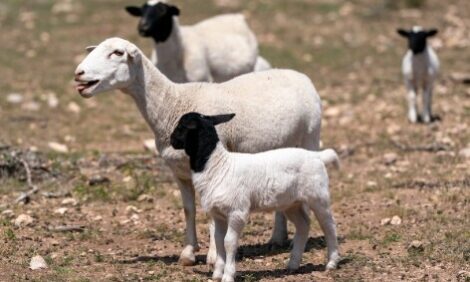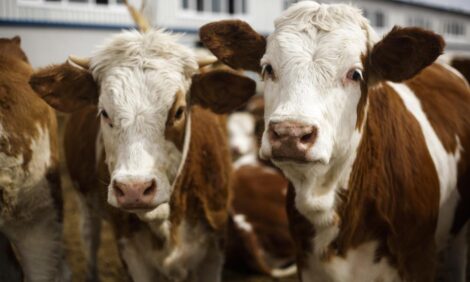



We've Been Doing It Wrong: Setting up Calves for High Production
THE NETHERLANDS - Many farms have been misguided in their approach to feeding dairy calves, the Global Dairy Calf Symposium heard last week.For decades, calf rearing principles have worked on restrictive feeding, resulting in generations of heifers being raised for a low plane of nutrition, experts told the Nutreco conference in Eindhoven.
The livestock sector has learnt that calves are ‘metabolically programmed’ in the pre-natal stages and in the first weeks of life, an insight which should alter nutrition planning.

This was the message of Professor Martin Kaske, senior lecturer at the Vetsuisse Faculty in Zurich, who said that established calf rearing protocols are ‘far removed’ from the animals’ physiology.
“The thinking 20 years ago was to push fed milk low, this was for convenience and the belief that it turned the calf onto solid feeds sooner,” said Professor Kaske.
However, doing this sends messages to a calf’s metabolism, preparing it for a life of sub-optimal nutrition and subsequently lower production.
“What you sacrifice early on cannot be made up later in adult life,” he told TheCattleSite.
He added that dairy calves are capable of ‘amazing’ growth and that concentrate intake is not suppressed by intensive feeding.
These findings stem from epigenetics, a term for alterations made by nutrition and environment to how genes are expressed.
In practice, this means a young calf presents ‘windows of opportunity’, where optimal nutrition and environment activate mechanisms in the animal’s physiology not available later in life, explained Leonel Leal, ruminant researcher at Nutreco.
*
"Research shows an enhanced pre-weaning diet leads to increased milk production later on"
“Calves have been shown to benefit from a higher plane of nutrition in early months,” he said. “Research shows an enhanced pre-weaning diet leads to increased milk production later on.”
The first eight weeks of life are instrumental in mammary gland development, he added.
But this is not only seen in cattle, Mr Leal gave examples from rats and bees.
“Metabolic programming occurs in several species,” he said. “A study found that restricted feeding in the first 25 days of a rat’s life led to acute growth restriction at age six to twelve months.”
In order to see if nutritional programmes are lacking, farmers need more data on heifer growth, a UK cattle health expert told the symposium.
Alastair Hayton, a director at Synergy Farm Health, said many farmers have ‘no clue’ about how effective their heifer rearing system is.
“With data you can understand what is going wrong and then refine management,” he said.
“Very few farmers, in my experience, know how many heifers they lose in a year.”
He added that weighing heifers could be hugely beneficial, calling on producers to be aware of the range of growth rates across a herd.
He emphasised the importance of feeding more milk more often.
“Two litres twice a day is not enough to support target growth,” he warned. “Feeding 500-600 grams of milk replacer is not achieving the right results.”
“It leads to a loss in productivity, and leads to fertility problems and higher culling rates later on.”
In terms of economic viability, a fifth of farm outgoings goes on rearing heifers, he added.
This has been calculated to cost English farmers 2.6 pence per litre on average (€0.33) and as much as 3.2 pence (€0.40, $0.54).
He explained that slow growth rates lead to costly cows, with many businesses seeing first calving at 30 months.
“We are already seeing fat cows and metabolic issues at this point,” added Mr Hayton.
More time and care is needed for calves. More care means lower heifer mortality rates, this means more space to raise replacements as fewer are needed, which means more time for rearing.
“Overall, figures illustrate that a 0.16 kilo growth rate per day can save £183 a heifer,” he added.
“This is the difference between a two year six months calving and a two year calving.”
Michael Priestley
News Team - Editor
Mainly production and market stories on ruminants sector. Works closely with sustainability consultants at FAI Farms



